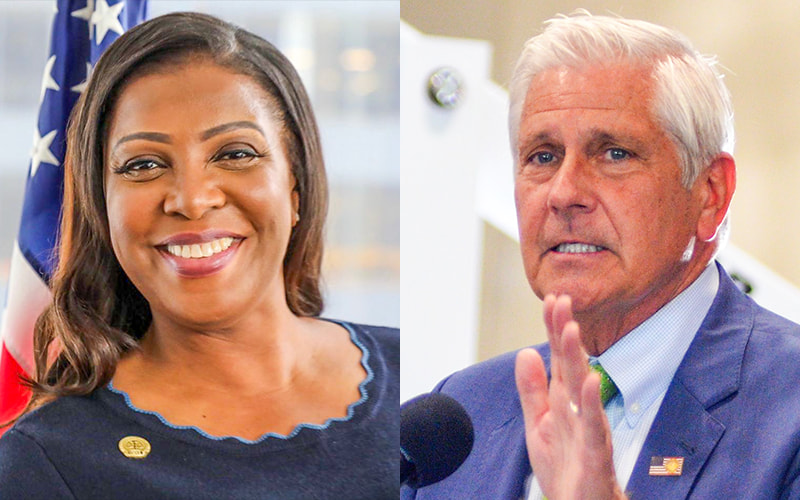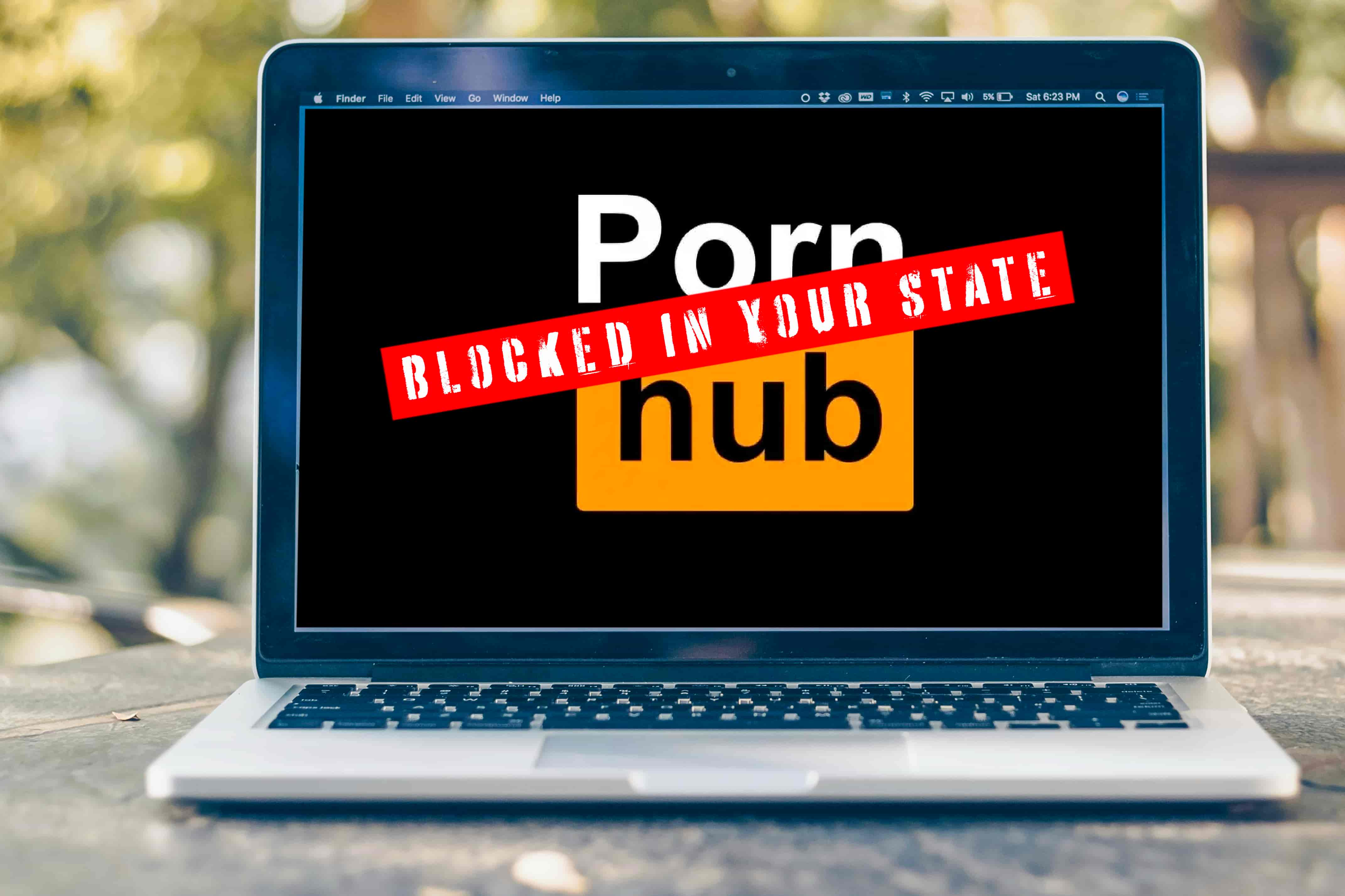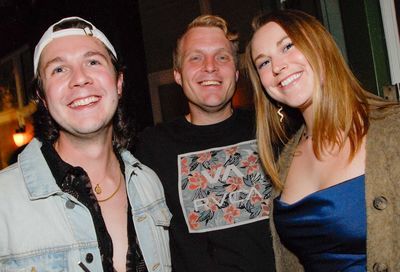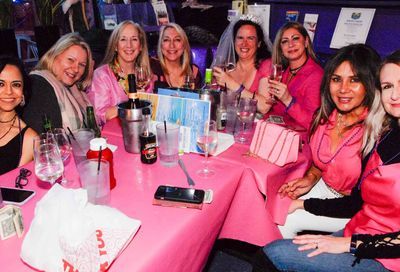This Town May Ban ALL Public Art Because of One LGBTQ Mural
Littleton, New Hampshire, is considering banning all works of public art after a board member objected to an LGBTQ "diversity mural."

Littleton, a town of about 6,000 people in New Hampshire, is poised to ban all public art after a local official objected to a “diversity mural” sponsored by an LGBTQ group.
State Sen. Carrie Gendreau (R), a member of Littleton’s three-person Select Board, took issue with a mural consisting of three paintings by artist Meg Reinhold, according to the CBC.
The mural, commissioned by the NOCO Mural Project in collaboration with the LGBTQ group North Country Pride using funds from a United Way program, went up in late summer on a brick wall outside local Chinese restaurant Jing Fong.
According to a post on NOCO Mural Project’s Instagram page, one of the paintings, which depicts dandelions growing out of an open book, is intended to be a commentary on the current political climate, in which books and access to gender-affirming care are being banned.
Another painting, showing a white bearded iris over a rainbow color wheel is meant to be a nod to the Greek goddess of rainbows, the Pride flag, and queer artist Hilma af Klint.
The third painting shows two white birch trees, New Hampshire’s state tree, and is titled “We Belong.”
Gendreau brought up her objections to the mural at an August 28 Select Board meeting, noting that the mural is on private property.
“I really think we need to be very careful about what kind of artwork goes up,” she said. “This last artwork that went up on the side of the Jing Fong building. I would encourage anyone to research what that really means.”
Gendreau did not elaborate on what she believed the mural’s meaning to be, though she appeared to be referencing its LGBTQ symbolism.
“It’s a very uncomfortable thing, I know, because it makes it sound like I’m anti…whatever. I’m not,” Gendreau said.
She also warned that the group behind the mural had plans to install more art on public property around town.
“It’s coming, and what went up was not good. Was not good,” Gendreau added. “I don’t want it to be here, I don’t want… I just don’t want it to be here.”
Town Manager Jim Gleason, who carries out the board’s wishes as part of his position, responded that the Select Board “definitely can regulate the public property.”
“We can keep every sign, no matter what it is, off of town property,” he said.
Following public outcry over her comments from the August meeting, Gendreau resigned from the board of directors for the Woodsville Guaranty Savings Bank, which issued a statement distancing itself from her comments regarding the mural, according to the Caledonian Record.
But she told that newspaper she would not apologize for her comments and refused to resign from the town board or her Senate seat.
Gendreau also reiterated her opposition to public displays of LGBTQ visibility or support.
“Some of our dearest friends are in the gay community. I love those people,” she told the Record. “But there seems to be a movement [to put LGBTQ culture] in our face. I don’t want Littleton to be plastered with sexuality, whether it’s heterosexual sexuality or homosexual sexuality.”
A conservative Christian who has said her policies are guided by biblical scripture, Gendreau told The Boston Globe she considers homosexuality an “abomination,” and believes that the murals in Littleton contain “demonic hidden messages” and “demonic symbolism.”
She also called local theater company Theatre UP’s upcoming production of La Cage aux Folles “disgusting,” and equated drag performers with pedophilia.
About 300 people attended the Select Board’s September meeting, with local LGBTQ groups organizing a silent protest against the proposed public art ban. Gendreau tabled a discussion of the ban in order to hear comments from the public.
At that meeting, Courtney Vashaw, the president of Theatre UP, was one of several who spoke against the ban and pushed back against Gendreau’s assertions.
“I am a queer woman. I am married to a woman. And I have not been indoctrinated by Satan or demons,” Vashaw told the board.
But the following month, during a meeting with town officials, Vashaw learned that the public art ban was still under consideration. Vashaw also told the Globe that Gleason, the town manager, informed her that the board was unlikely to renew Theatre UP’s lease for the Littleton Opera House due to its “inextricable link to the LGBTQ community.” The lease expires in May.
“Under the current environment that we’re going through,” Gleason told the Globe, “I think it would be very difficult to get two of the three board members to be supportive of any kind of long-term agreement with the group.”
This has led some to accuse the Select Board of trying to enact political retribution against the theater group for opposing the art ban. At the board’s October meeting, several people called on Gendreau to resign, according to a statement from North Country Pride. Board member Linda MacNeil also spoke against censorship of art — though it is unclear whether Board Chairman Roger Emerson will side with her or with Gendreau regarding the ban.
Gleason, the town manager, told the Globe that the town of Littleton is currently seeking legal advice on banning public artwork altogether, as banning only LGBTQ-themed art would likely be found to violate the state’s nondiscrimination laws, and could result in costly lawsuits for the town.
But ultimately, he says, the final decision will be left in the Select Board’s hands.
“Then their decision is, ‘All right, does it bother you enough that you want to ban, then, all art?'” Gleason told the CBC. “Or is it like, ‘OK, it bothers me, but I don’t want to get into a constitutional legal fight and spend taxpayers’ dollars and go through on this?’ That’s the decision the [board] will have to make.”
Support Metro Weekly’s Journalism
These are challenging times for news organizations. And yet it’s crucial we stay active and provide vital resources and information to both our local readers and the world. So won’t you please take a moment and consider supporting Metro Weekly with a membership? For as little as $5 a month, you can help ensure Metro Weekly magazine and MetroWeekly.com remain free, viable resources as we provide the best, most diverse, culturally-resonant LGBTQ coverage in both the D.C. region and around the world. Memberships come with exclusive perks and discounts, your own personal digital delivery of each week’s magazine (and an archive), access to our Member's Lounge when it launches this fall, and exclusive members-only items like Metro Weekly Membership Mugs and Tote Bags! Check out all our membership levels here and please join us today!
























